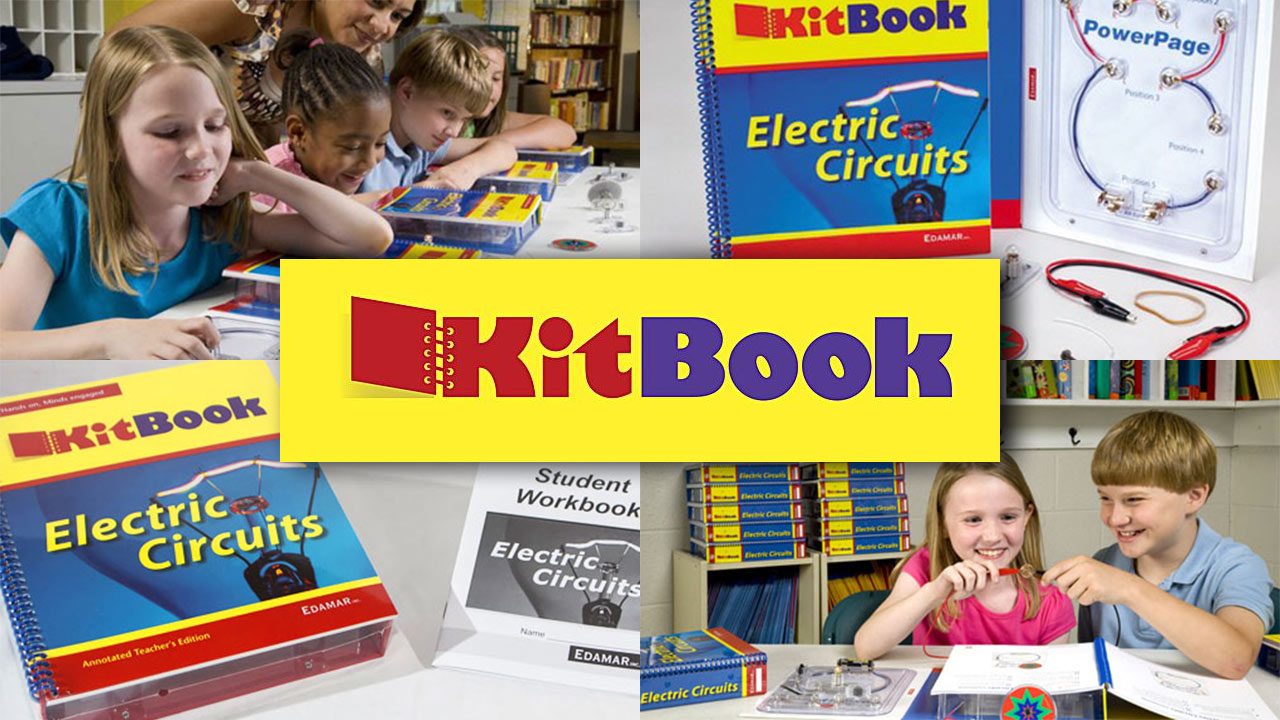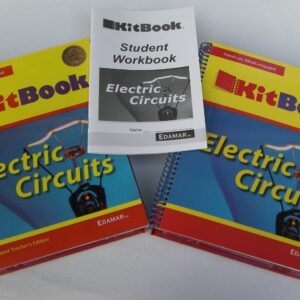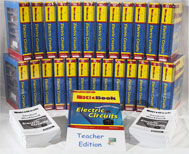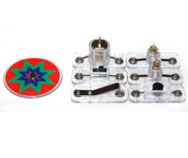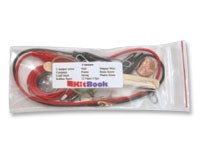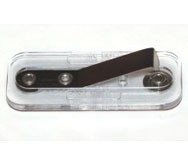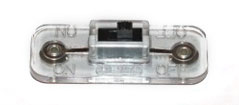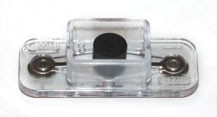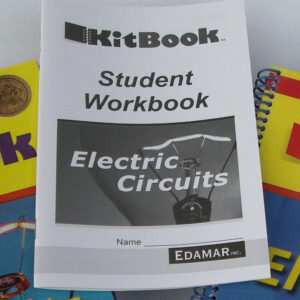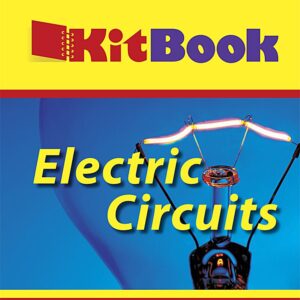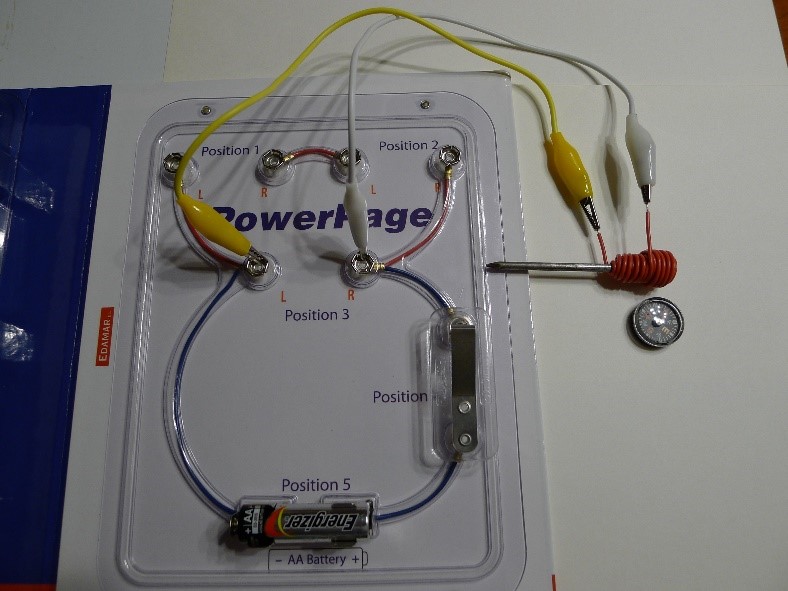The Electric Circuits KitBook improves test scores 32% over traditional teaching methods.
The Electric Circuits KitBook, manufactured and marketed by Edamar, Inc., significantly improves test scores over traditional teaching methods, says a new study released by The University of Tennessee.
The research findings concluded that overall, students who learned the concepts of electricity and electric circuits using Electric Circuits KitBook performed considerably better on standards-based tests than students who did not use KitBooks.
The study, conducted by Dr. Mehmet Aydeniz of the Department of Theory and Practice in Teacher Education web.utk.edu/~tpte/, reported:
– Overall, 32% higher mean test scores for students using KitBooks.
– More than 35% higher mean test scores related to electrical safety for students using KitBooks.
– KitBooks meet the quality criteria established by The Project 2061 Curriculum Standards.
KitBooks combine the hands-on features of a science kit with the text of a book in a single self-contained curriculum supplement. With KitBooks, students build actual working electric circuits on a page in the book.
Sponsored by The University of Tennessee Center for Industrial Services (UT CIS) www.cis.tennessee.edu, the study examined the effects of a KitBook-based curriculum on student’s conceptual understanding of electricity and simple electric circuits as compared to a traditional textbook-based teaching approach.
The study tested the effect of the Electric Circuits KitBook on fourth grade elementary school children’s conceptual understanding of electric circuits by comparing two groups of students, one that used KitBooks and one that didn’t.
Noting the higher test scores by those who used KitBooks, Dr. Aydeniz stated, “Overall, the students who learned the concepts of electricity and simple electric circuits through the Electric Circuits KitBook outperformed the students who were randomly assigned to the control group.”
“The test results provide empirical evidence of the superiority of the Electric Circuits KitBook over the traditional ‘battery, wire and light bulb’ method of teaching the concept of electricity and simple electric circuits,” Aydeniz stated in the study.
Ed Basconi, President of Edamar, Inc. and inventor of the KitBook said, “We’re thrilled – although not surprised – with the results of this study. Students, teachers, and parents have been telling us that the Electric Circuits KitBook is a fun and fantastic learning tool. Now we have data to prove it.”
The study noted that scholars attribute students’ general difficulty in understanding physics concepts to the inefficiencies of traditional approaches to instruction. These approaches typically rely on readings from textbooks with limited or no reference to the application of the scientific concepts. KitBooks overcome this teaching gap by combining theory with practice.
The results of this study mirror prior studies which concluded that students in classrooms where teachers used activity-based, hands-on learning methods of teaching performed better than those in traditional classrooms. Furthermore, they found that activity-based methods of teaching provided the greatest benefit to female students and students coming from minority and socioeconomically disadvantaged backgrounds.
About Edamar, Inc.:
Edamar, Inc. is an award winning start-up company in the hands-on science education market. Located in Johnson City, TN, Edamar was founded by two engineers, Ed Basconi and David Jones, to help improve scientific and technologic literacy in an increasingly technology-driven world. Edamar’s first product is the KitBook — a patented combination of a hands-on science kit and a textbook. For more information please visit www.KitBook.com, e-mail hello@KitBook.com, or call 423-794-6222.
About the University of Tennessee Center for Industrial Services:
The University of Tennessee’s Center for Industrial (CIS) www.cis.tennessee.edu is an agency of the statewide UT Institute for Public Service services and has a primary mission to assist manufacturing firms in Tennessee stay competitive in the global market. It has been responsible for helping apply the resources of UT and other Tennessee Board of Regents schools to Tennessee manufacturers and businesses since 1963.
About the University of Tennessee Theory and Practice in Teacher Education Department:
The mission of this department is to develop innovative, research based programs for teachers, teacher educators, educational administrators, and educational interpreters. The Department works with schools and educators across the university, in the region, state and nation for the improvement of education and interpreting. Dr. Mehmet Aydeniz is an Assistant Professor of Science Education in the Department of Theory and Practice in Teacher Education web.utk.edu/~tpte/. He received his M.S. with a concentration in chemistry in 2001, and his Ph.D. in 2007 from The Florida State University in Science Education. He has worked as a high school chemistry teacher for three years in Orlando, FL.

